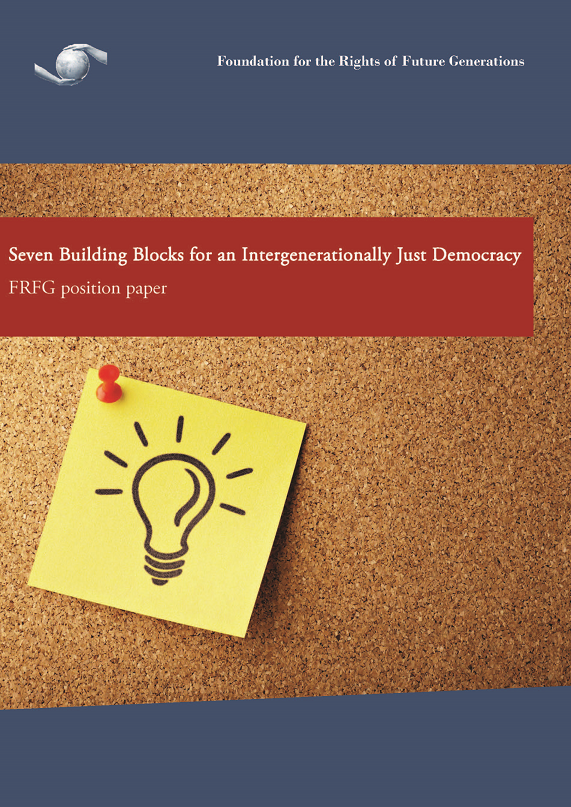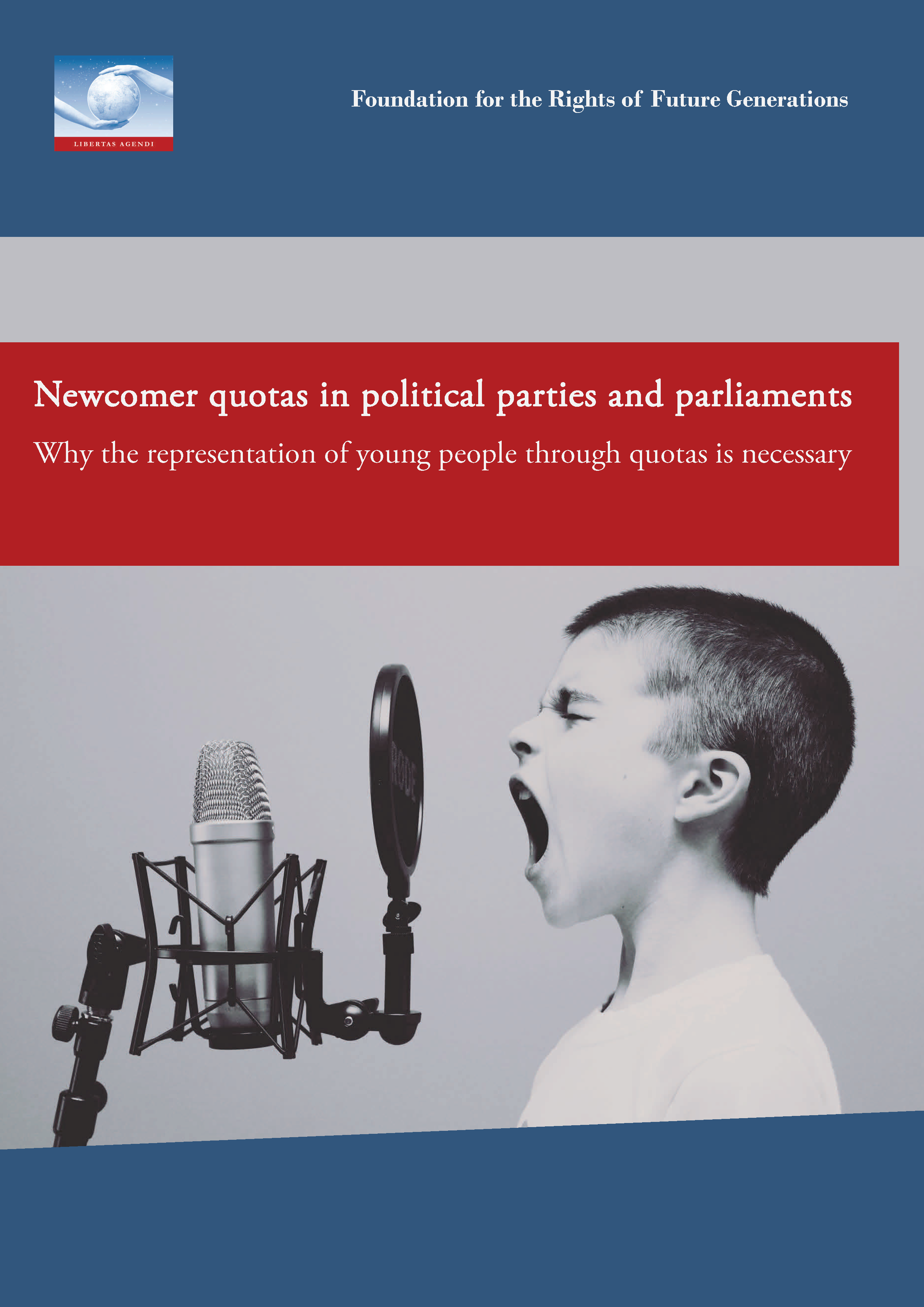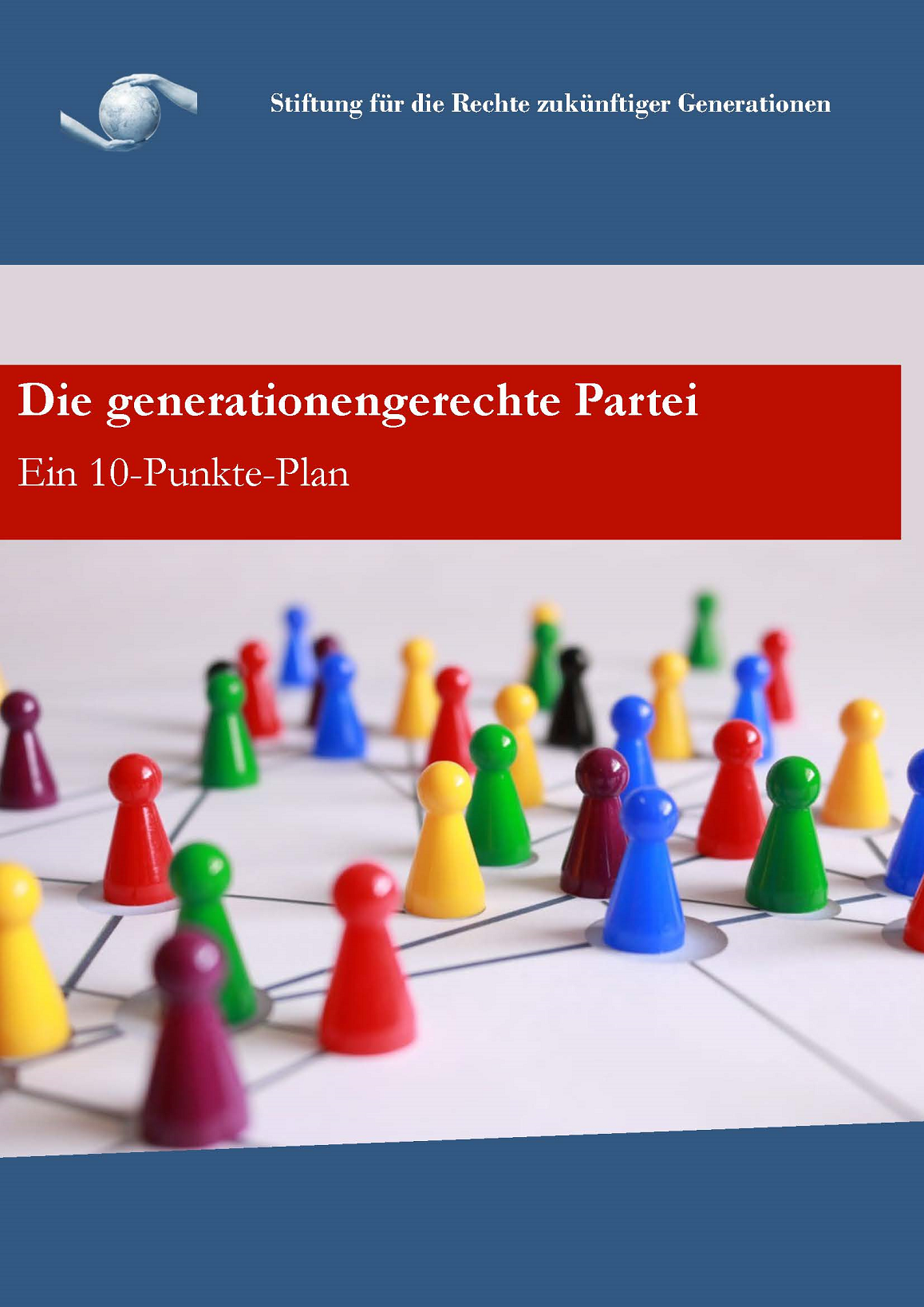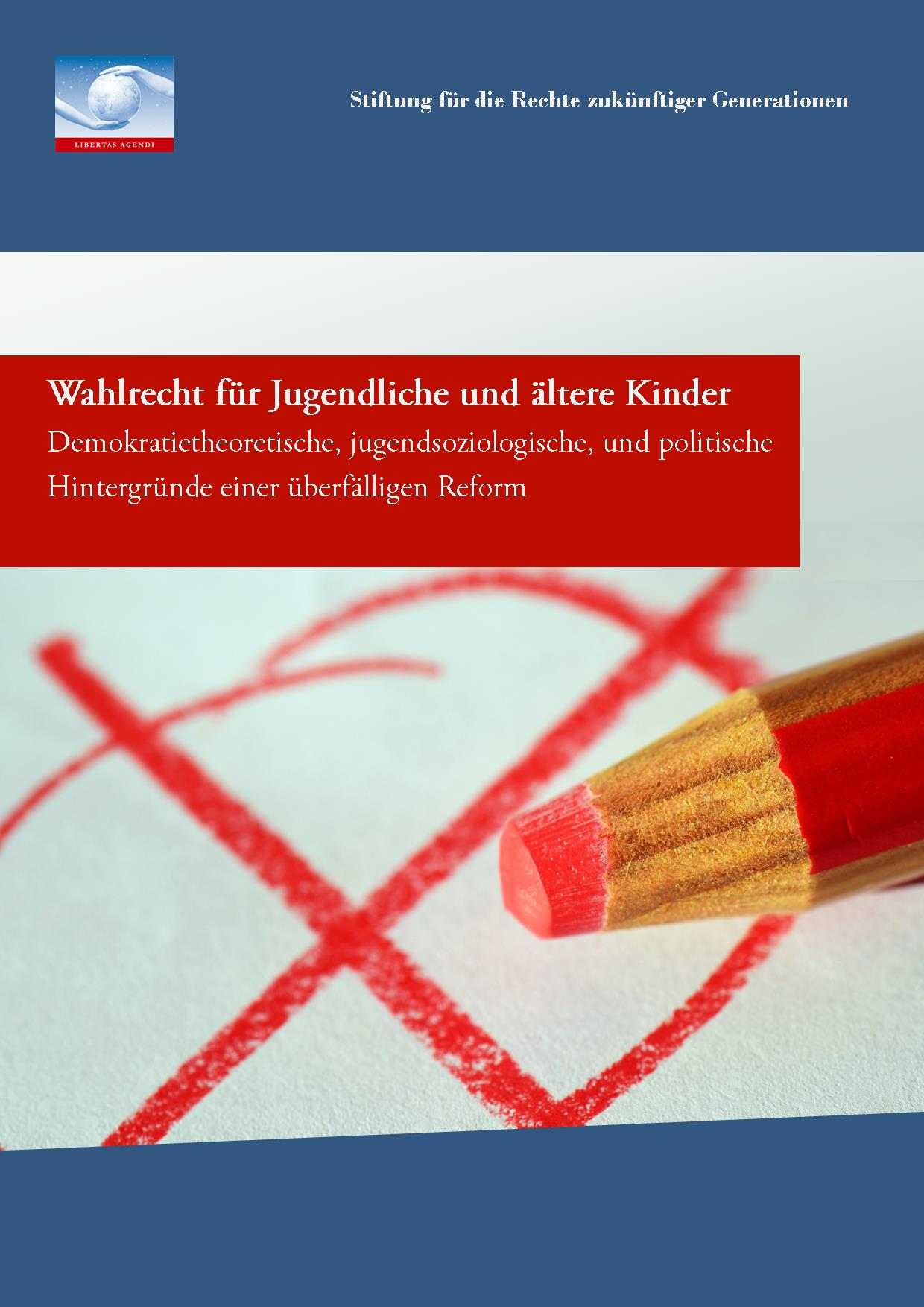
If politicians want to be re-elected they must first take into account the interests of today’s generations. This provides a false incentive, namely for a policy of “glorifying the present and neglecting the future” (Richard von Weizsäcker). Individuals born in the future have no voice right now. Through no fault of their own, politicians are forced to listen to nobody else except those who are loudest today.
Legislative periods cannot be too long without pushing back the influence of the electorate too far and thus endangering the very essence of democracy. However, technological progress ensures that the effects of current actions extend far into the future and can have a profoundly negative impact on the quality of life of many future generations.
If future generations could assert their interests in the political decision-making process, then the majorities for important political decisions would be different. Take energy policy: today’s focus on fossil fuels currently enables a uniquely high standard of living, but accepts serious disadvantages in the medium run. Take financial policy: financing today’s consumption through debt shifts burdens into the future and reduces the freedom of future generations of politicians to shape their own policies.
Institutions for Future Generations
Intergenerational justice must be anchored in the entire policy process in order to reduce our fixation on the present. Institutions supposed to ensure this in Germany are not sufficient. Whether the German Council for Sustainable Development, the Parliamentary Advisory Council on Sustainable Development, the Sustainability Impact Assessment or the German Advisory Council on Global Change (WBGU) — they are not up to the task.
In other countries such as Israel, Wales and Hungary, but also in scholarly literature, we find examples of how it could be done better. Some of these no longer exist and they all have their strengths and weaknesses. The Foundation for the Rights of Future Generations had the privilege of meeting the Future Generations Commissioner for Wales, Sophie Howe, to discuss the chances and challenges for policies regarding the well-being of future generations. Having in mind these examples we developed our own proposals for Germany: The seven building blocks for a more future-oriented democracy by the Foundation for the Rights of Future Generations.
Intergenerational Justice in Constitutions
The German constitution has so far provided little assistance, since our legal system currently privileges the rights of current individuals above all. For these reasons, an environmentally sustainable and intergenerationally just society can only be achieved if the ecological demands of future generations are institutionally anchored. Future generations need a voice in parliament, in the constitution, or in both. Similar initiatives have already been implemented in Israel, Switzerland and Hungary.
An important step towards making our democracy more intergenerationally just is the demand for the right to vote for all citizens, including older children and young people. Read more on our “We Want to Vote!” campaign.
In 2005 to 2009 we brought together a cross-party-initiative to have intergenerational justice protected by the German constitution. Find out about the campaign here.






